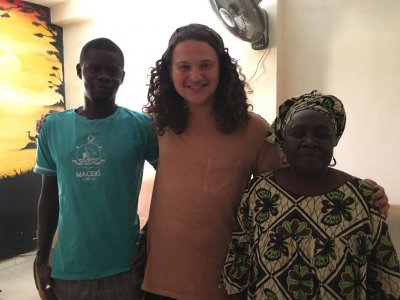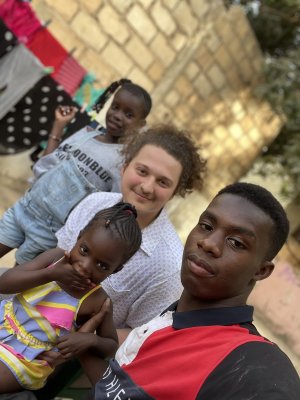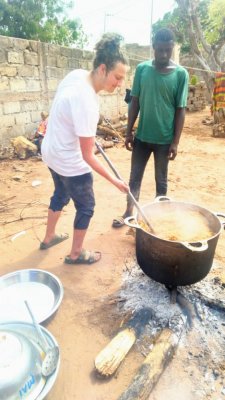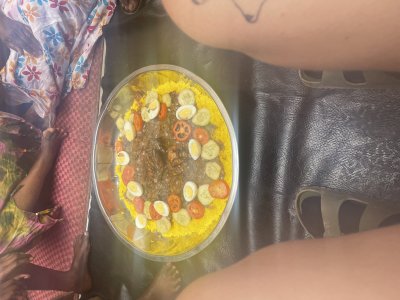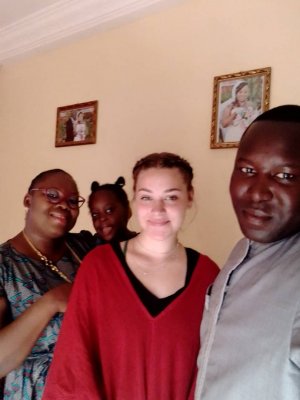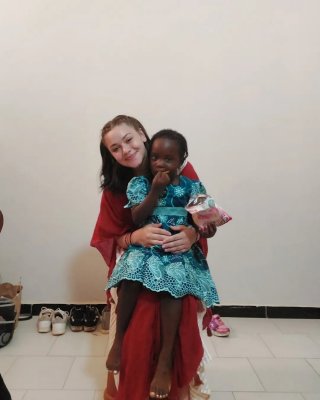Teranga
In this post, Birch and Anna reflect on the meaning and practices of teranga in Senegalese culture.
Teranga is sometimes translated into English as “good hospitality”. Americans think of hospitality as the efforts we make to help guests feel welcome. In Senegal, teranga is that and so much more. It is often described as a value and set of practices that blend hospitality, respect, community and solidarity.
Sharing food
Teranga is part of Senegalese culture and one way the Senegalese put teranga into practice is by making sure everyone has enough to eat. In my experience (Birch), this means strangers are welcome at the dinner table, snacks are always shared, and our families feed us more than we can eat. Goshen College students tell stories of strangers joining their family for dinner and sharing the food so that everyone had something to eat. Every time my little sister has a snack or some fruit, she will come find me to give me some. The phrase “2nd dinner” has become popular in our group because when we dinner away from home, many of our host families feed us a 2nd meal when we return. Even if we tell our parents we’re full or say, “no thank you,” they insist we eat anyway. Keeping us fed is one of the practices through which they show us Teranga.
Sharing things
In addition to sharing food, many families have given up beds, rooms, fans, etc. for us. Three of my family members share one room so that I can have my own. Other students have mentioned that some of their family members don’t have beds to sleep on. Our families have sacrificed much for us to be here. We don’t just feel welcomed, we feel wanted.
Building solidarity
Along with their actions, my family (Anna) has shown me teranga through their words. The first night I was with my host family, we were eating dinner and I must have looked nervous or tense. My host dad said something to me in French that I didn’t understand. He paused for a moment to think and then in English said, “Relax, you are one of us”.
On another occasion, I was showing my host mom my Wolof notes from class. In Wolof I said, “I am American”. She responded immediately with, “And now you are Diola too”. More recently around the dinner table my host mom pointed to me and asked my little sister in French “who is that?” Édina, my sister, said, “Anna!” My mom said, “Yes, Anna Diatta, like you Édina Diatta.” Édina seemed unsure of this and so my dad said, “she is your big sister, no? Anna Diatta”. These three instances stand out in my mind and leave me with no doubt that I am part of the family.
